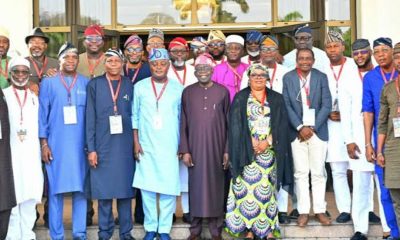metro
Lagos takeover of Lekki-Epe road, LCC gets assembly approval

Lagos State Governor Babajide Sanwo-Olu’s request for the state to assume full ownership of Lekki Concession Company Ltd, a privately owned company, has received the approval of the state House of Assembly.
The House made the resolution to approve the governor’s request after a presentation of the House Committee on Finance report during plenary session on Monday.
The LCC is the contractor of the Lekki-Epe Expressway and operator of the Lekki toll plaza. The plaza was at the centre of controversy that followed the alleged killing of Endsars protesters by soldiers.
The Lagos House of Assembly had received the request from the Executive on June 21 “and was committed to the Committee on Finance to further look into it and report its findings to the House.’’
The committee’s Chairman, Mr Rotimi Olowo (Somolu I), in his presentation, said the state would become the subsisting shareholder of the LCC with 75 per cent shareholding and the Office of Public Private Partnerships shareholding of 25 per cent.
The lawmaker added that this followed the buy-out of all the shareholding interests of the company by the state government.
Olowo said the original $53.9 million loan obligation from a private sector facility had been resolved after series of engagements between Africa Development Bank, the company and the state government.
He said, “The agreement was to convert the loan to a public sector facility with the benefit of a considerable reduction in interest charges of 1.02 per cent of $1.12 million biannual.
“This is against the 4.12 per cent of $2.746 million per bi-annual, therefore, giving a savings of $1.16 million bi-annual or $3.24 milliom per annum.
“The House, therefore, granted the executive the approval to convert the AFDB loan to the public sector loan backed up by sovereign Federal Government guarantee on behalf of the state government.
“This also authorises the state government to issue a counter-guarantee in favour of the Federal Government along with an Irrevocable Standing Payment Order (ISPO) to deduct from the state’s statutory allocation.”
Olowo noted that the servicing of the loan obligations would have a maturity period of August 2034.
Mr Gbolahan Yishawu (Eti-Osa II) supported the committee’s recommendation, saying, “It was a smart move as the interest rate would not injure what the state was spending on capital expenditure.’’
He added that it would also reduce the interest risk as well as the rate by moving the loan from private to public sector.
Abiodun Tobun (Epe I) said the saving of 3.1 per cent in interest rate difference would reduce the burden on the state government and encourage the savings to be used to develop other sectors.
Femi Saheed (Kosofe II) said restructuring the loan was an indication of the transparency in the state financing, saying it gave add-on flexibility for the additional years granted for the repayment of the loan.
Saheed noted that the request was a standard financial procedure practised all over the world.
The Speaker of the House, Mr Mudashiru Obasa, thereafter, directed the Acting Clerk of the House, Mr Olalekan Onafeko, to send a clean copy of the resolution of the House to the governor.
metro
Ex-LG chair challenges El-Rufai’s claims on council funds
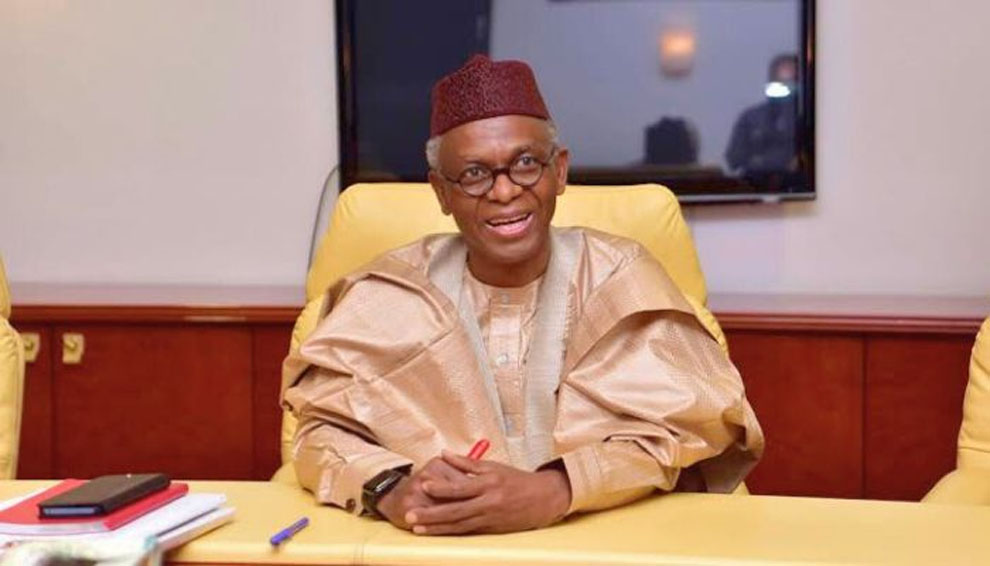
Ex-LG chair challenges El-Rufai’s claims on council funds
Former Secretary of the Association of Local Governments Of Nigeria (ALGON), Kaduna State chapter, Alhaji Kabiru Jarimi, has refuted ex-Governor Nasir El-Rufai’s claim that he never interfered with Area Councils’ funds during his tenure.
Jarimi, who served under El-Rufai’s administration, described the claim as misleading, stating that funds were routinely deducted from councils’ allocations under various guises by the previous government.
The ex-ALGON State Secretary, who is also the former Chairman of Kaduna South local government, disclosed this in an interview over the weekend.
“I was shocked by El Rufai’s comment because local government funds were deducted without our approval. Most of the deductions targeted Southern Kaduna LGAs.
READ ALSO:
- Some ladies in movie industry ready to sleep their way to fame — Jide Kosoko
- Gunmen abduct Catholic priest in Anambra
- Adeleke University didn’t suspend Muslims for praying – MSSN
“We never got our full allocations under El-Rufai. His government kept introducing policies to deduct funds unnecessarily. I even considered resigning. At times, we had no funds for overhead costs after paying salaries,” he recalled.
Jarimi, who said that El-Rufai justified the deductions as necessary to settle workers’ salaries, further noted that the state government also employed various means to withdraw additional funds.
The former Council Chairman cited the creation of the Kaduna Capital Territory Authority, Zaria Metropolitan Authority and Kafanchan Municipal Authority as a means of shortchanging local governments.
“Salaries were shared 60–40 between the capital territories and LGs around them. In Kaduna South, deductions were made in the name of sanitation, forcing us to remit funds to the Kaduna Capital Territory Authority (KCTA) every month,” he stated.
The former Chairman further alleged that the funds of local governments outside the capital territories were also deducted without explanation, citing deductions for security and ‘riot damage.’
Ex-LG chair challenges El-Rufai’s claims on council funds
metro
Gunmen abduct Catholic priest in Anambra

Gunmen abduct Catholic priest in Anambra
A Catholic priest, Rev. Fr. Stephen Echezona of St. Patrick Church, Ichida, has been reportedly abducted by gunmen in Anambra State.
According to a report by security analyst and counter-insurgency expert, Zagazola Makama, the incident occurred around 6:00 p.m. on Saturday when four armed men, operating in a white Lexus 330 SUV with an unknown registration number, intercepted the cleric and whisked him away along with his Toyota Highlander SUV.
READ ALSO:
- Adeleke University didn’t suspend Muslims for praying – MSSN
- Juventus to sign Osimhen with player-plus-cash offer
- Police inspector kills one, injures two, holds colleagues hostage in Calabar
A joint team of security operatives and local vigilantes (AVG) were said to have responded swiftly to the attack, pursuing the assailants and engaging them in a gun duel at a road intersection between Oraeri and Akwaeze villages.
Though the criminals managed to escape, their Lexus SUV sustained significant damage, including a shattered rear windshield.
The Anambra Police Command is yet to release a statement on the abduction of the priest.
Gunmen abduct Catholic priest in Anambra
metro
Adeleke University didn’t suspend Muslims for praying – MSSN
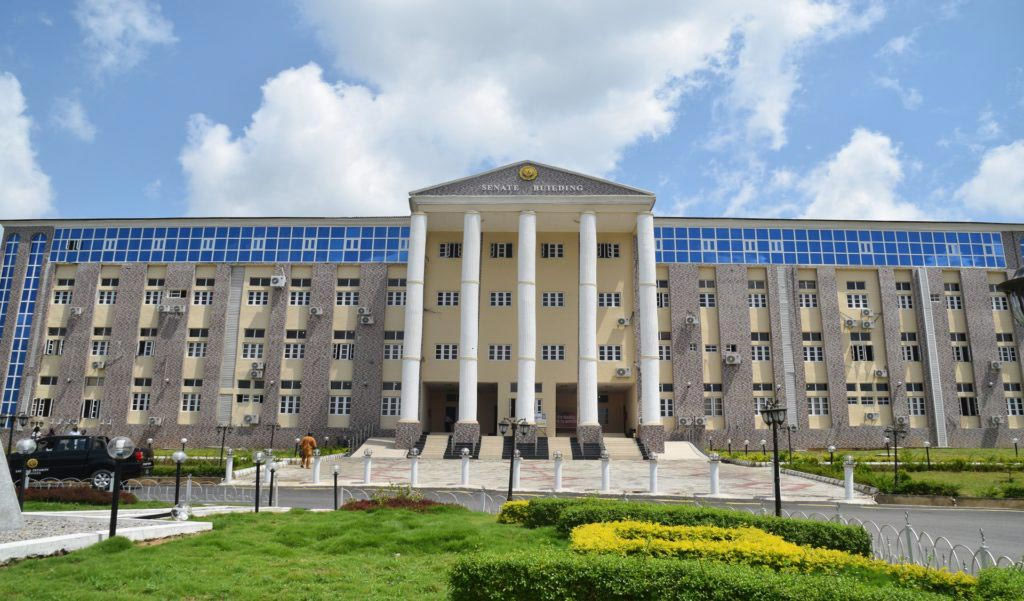
Adeleke University didn’t suspend Muslims for praying – MSSN
The Muslim Students’ Society of Nigeria (MSSN), Adeleke University Branch, Ede, Osun State, has described as “fake news” a statement credited to MURIC which alleged the suspension of a Muslim student of the university over Friday prayers.
The association, in a statement signed by its Ameer, Imran Adigun AbdulHakeem, on Sunday, said MURIC’s reports circulated on social media were a misrepresentation of happenings within the university, saying “our faith is respected by the management.”
In another letter, the association apologised to the director and facilitator of the university, Chief (Mrs) Dupe Adeleke-Sanni, whom the association credited with providing a conducive atmosphere for Muslim students to practise their faith.
The letter reads: “On behalf of the Muslim Students Society of Nigeria (MSSN), Adeleke University Chapter, [I] write to address the ongoing misinformation circulating on social media and other platforms regarding the suspension of Muslim Students for praying on Campus.
“On the 14th of March, 2025, we were temporarily suspended from observing our Night Ramadan Prayers (Taraweeh) and Jummat prayers on campus on the orders of the Director of Security Service (DSS).
“However, on the 18th of March, we met with Dr. Mrs. Modupe Adeleke regarding these challenges.
READ ALSO:
- Juventus to sign Osimhen with player-plus-cash offer
- Police inspector kills one, injures two, holds colleagues hostage in Calabar
- Fresh explosion rocks gas facility in Rivers
“She provided us with a place where we could observe Ramadan, Jummat prayers, and the five daily prayers which we accepted. As a result, the suspension has been lifted, and we have resumed prayers at the new location provided by the university on the orders of Dr Modupe Adeleke.
“At no time have Muslim Students been forced to change their beliefs. While challenges may arise in any diverse academic institution, the university management has always been open to dialogue, and we have continued to receive support in practicing our faith.
“Adeleke University has provided a peaceful and respectful environment for all faiths, and we continue to practice our religion freely.
“We urge the public to disregard the misinformation that may have been spread regarding this matter as they do not reflect the reality of our experiences,” the letter to the university management noted.
The letter of apology to Chief (Mrs) Dupe Adeleke-Sanni reads: “As-salamu alaykum (peace be upon you). On behalf of the Muslim Students’ Society of Nigeria (MSSN), Adeleke University Chapter, I apologize for any distress caused by the false social media reports.
“We assure you that we had no hand in spreading the misinformation. We are deeply grateful for your unwavering support, guidance, and kindness towards us.
“Your commitment to our well-being and academic success is invaluable, and we appreciate everything you’ve done for us. May Allah (SWT) reward you abundantly for your good deeds. Jazakumullah khairan (may Allah reward you with goodness).
“Thank you for being an exceptional Mother and mentor. We are blessed to have you,” the letter added.
Adeleke University didn’t suspend Muslims for praying – MSSN
-

 metro2 days ago
metro2 days ago‘We’re not hiring,’ NNPC denies viral recruitment adverts
-

 metro1 day ago
metro1 day agoNatasha: Court blocks recall attempt, stops INEC
-
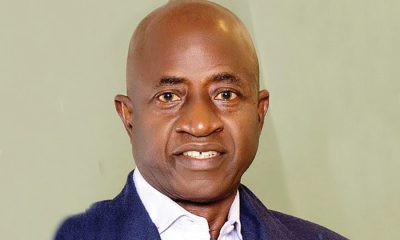
 Sports1 day ago
Sports1 day agoOdegbami speaks on Osimhen breaking his 44-year goals record
-
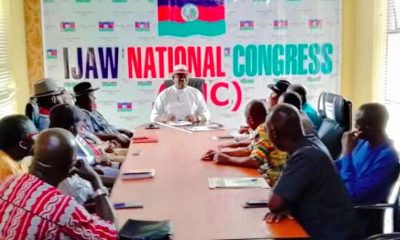
 metro3 days ago
metro3 days agoMore trouble brews in Rivers as Ijaw congress considers self-determination option
-

 Entertainment1 day ago
Entertainment1 day agoI didn’t snatch Asake’s mother from her husband -Musibau Alani
-

 Sports2 days ago
Sports2 days ago2026 WCQ: Super Eagles move up to third place with 2-0 win in Rwanda
-

 metro1 day ago
metro1 day agoBoko Haram attacks military base in Adamawa
-

 metro1 day ago
metro1 day agoOluwo accuses Ooni of plotting to dethrone him

